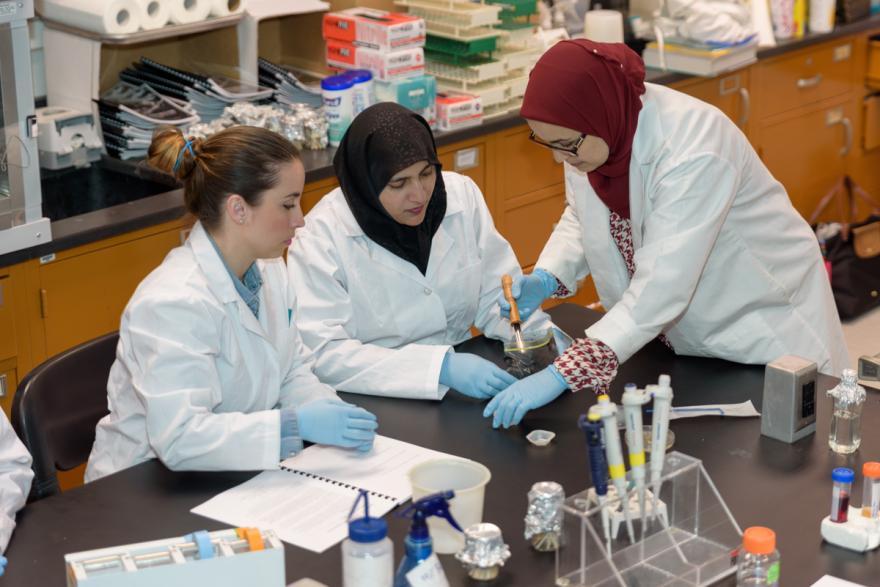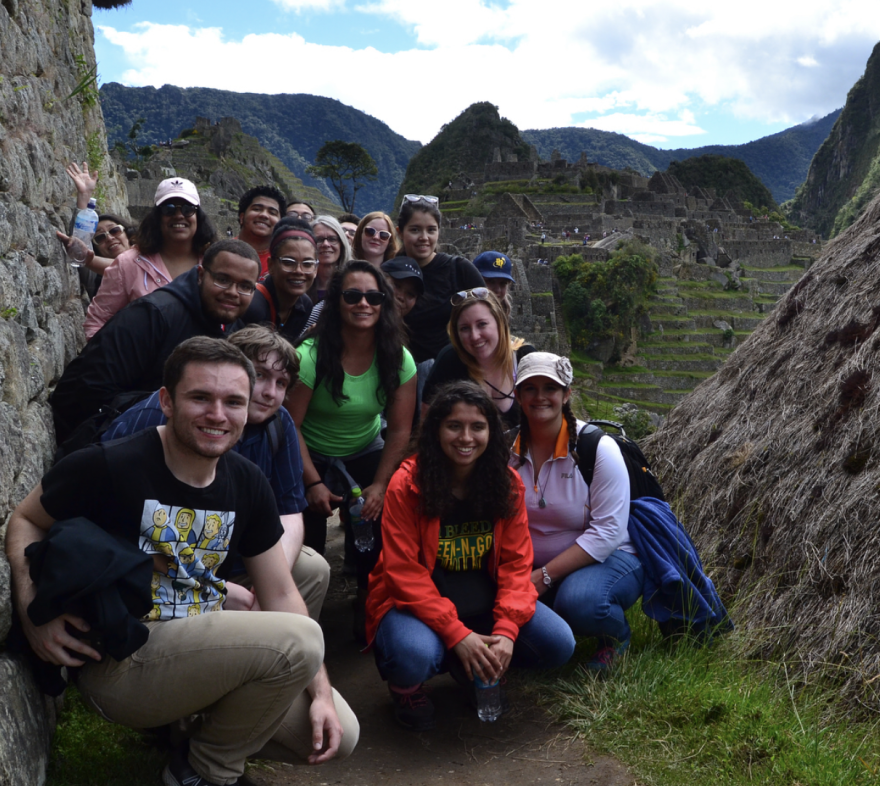Courses and Program Requirements
Honors Courses
Honors courses (designated HON) are taught by some of NJCU’s best faculty, from a wide range of departments across four colleges/schools. Many of the courses are connected to each other in learning communities, ensuring an educational experience that recognizes the complex and interrelated way knowledge is produced and consumed in the contemporary world. Many Honors courses are enrolled in a cohort model. This builds community among students, as each incoming cohort of students takes many classes together with their Honors student peers. Honors courses are open only to students in the Honors Program. Examples of past Honors courses include:
- Ancient Greek Philosophy
- Black Berlin
- Climate Change and Environmental Aspects of Small Tropical Island Nations
- Food, Place, and Cultural Performance in Peru
- Forensics
- Global Political Economy
- Historic Preservation in the Global City: New York, Shanghai, Beijing
- Honors Ethics
- Recycling and Recirculating in Different Media
- Trial Advocacy and the American Legal System
Program Requirements: The Honors Core Curriculum — 33 credits
The Honors experience is holistic, engaging students academically, socially, and professionally. The Honors Core Curriculum is central to that experience. The Honors Core substitutes for NJCU's General Education, so Honors students do not take General Education but instead take the Honors Core. Given this detail, the Honors Core has breadth, depth, and offers an integrated set of interdisciplinary courses, combining methodologies and topics from various disciplines.
The Honors Core is 33 credits distributed over four years, scheduled as follows:
- Four 100-level HON courses, taken in freshman year (12 credits)
- Two 1-credit Professional Development courses, taken in freshman year (2 credits)
- Three 200-level HON courses, taken sophomore year (9 credits)
- Two 200/300-level HON courses, taken after Sophomore Fall. One of the two must be STEM (6 credits)
- One 400-level HON Capstone course, taken junior or senior year (3 credits)

